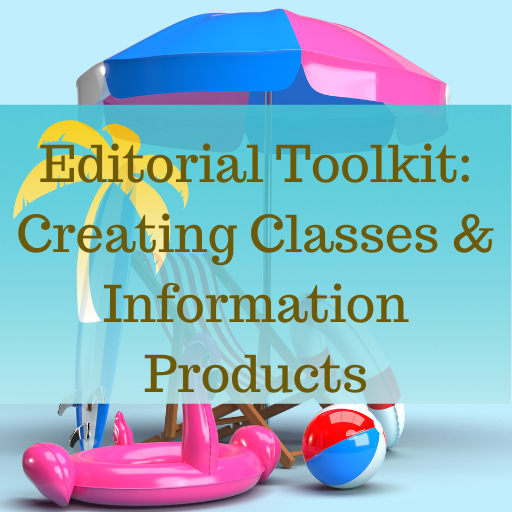Using information products to boost your bottom line
People like to pretend that you can write a book and make passive income from it.
You can’t.

If you write a book and stick it up on Amazon and never do anything to promote or market it, you’re not going to sell any copies. Okay, you might sell three or four to people who have accidentally stumbled onto it but twelve dollars in royalties hardly repays how long it takes to write a book (even a short book).
So I’m not going to say that you can make money while you sleep!!! by writing a book. But I do think ebooks (and similar information products, like a white paper or collection of templates) can help improve your bottom line.
A couple of years ago I wrote The Club Ed Guide to Running a Profitable Freelance Editing Business because the #1 question I get asked is some form of “So, how do you run a profitable freelance editing business?” And instead of answering this question over and over or (more often) not answering this question at all, I just started sending people the link.
I had written about running a freelance business for my blog and for other reasons, so while writing the book certainly took time, it wasn’t as if I started from scratch. I took all of the previously written material and piled it together and shaped it into a coherent narrative. It took probably four weeks of fairly focused effort, plus some time revising after a few beta readers got their hands on it.
I don’t do a lot to market this book, though you can find it on the Club Ed website, and as a result, I don’t make a ton of money in royalties from it. But it has boosted my bottom line considerably because people who read the book take my classes. And that is where I make most of my income.
If someone has heard of Club Ed, but they’re not sure they want to take a class, they can buy the book for ten bucks and find out if they think I have anything to say that they want to listen to. It’s a minimal investment, but once they’ve made it, they’re highly likely to purchase a class from me.
If you’re trying to book more editing clients, some kind of information product (doesn’t have to be a book) that requires a small financial investment on the client’s part can convert more potential clients into actual clients. It gives them a chance to get to know your approach and to decide whether they trust you before they spring for a bigger-ticket item.
Other Helpful Content
-
How to Read Like an Editor
Book development editors don’t read books the way readers do. To sharpen your developmental editing skills, you need to learn to read like an editor does (instead of the way a reader does). When you’re a reader, you enter the author’s world. You willingly suspend your disbelief in order to experience this world. That doesn’t…
-
Story Editing as a Second Career
When I teach developmental editing classes, I get a lot of students transitioning from other careers. They’re often lawyers, social workers, and teachers – though I’ve also taught actors, accountants, and engineers, among others. What they have in common is that they love stories and want to explore whether book editing (story editing/developmental editing) is…
-
Getting Started Teaching How-To Classes
If you’re a developmental editor, you’ve probably occasionally thought about teaching a class for writers—perhaps as a means to let people get to know you before they invest in the expense of a full developmental edit or because you want to help them solve some common writing problems before they finish their first draft or…
Join the Club!
New to story editing? Begin at the beginning.



